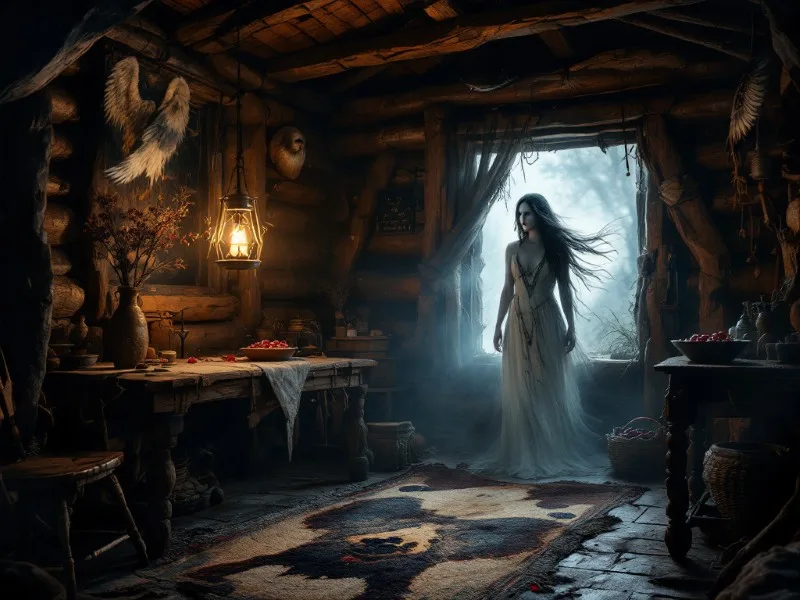Introduction to the Mississippi Band of Choctaw Indians
The Mississippi Band of Choctaw Indians is a vibrant and culturally rich Native American tribe located in the southeastern region of the United States. With a history that dates back centuries,the Choctaw people have a deep-rooted connection to their ancestral lands,traditions,and languages. Originally part of the larger Choctaw Nation, the Mississippi Band was officially recognized as a federally recognized tribe in 1945, allowing them to preserve and revitalize their unique heritage.
This tribe is renowned for their commitment to education, economic growth, and cultural preservation. The Mississippi Band of Choctaw Indians operates several businesses,including gaming enterprises,which play a pivotal role in supporting their community and enhancing the quality of life for their members. The tribe’s tribal government is proactive in advocating for the rights and interests of its people, emphasizing sustainability and cultural education for future generations.
Culturally, the Mississippi Band of Choctaw Indians boasts a rich tapestry of traditions, including traditional dances, crafts, and storytelling that reflects their history and spiritual beliefs. Their annual events, such as the Choctaw Indian Fair, serve as a celebration of heritage, bringing together members and visitors alike to partake in the vibrant arts, music, and food that define Choctaw culture.
In addition to their economic and cultural initiatives, the Mississippi Band of Choctaw Indians is dedicated to preserving their native language, Mississippi Choctaw, through educational programs and community engagement. This commitment not only strengthens the tribe’s identity but also fosters a sense of pride and belonging among young members.the Mississippi Band of Choctaw Indians represents a resilient and thriving community that honors its past while looking toward the future. Their ongoing efforts to promote cultural awareness and economic vitality make them a significant part of the American landscape, offering valuable insights into the rich heritage of Native American peoples. Through steadfast dedication to their roots, the Mississippi Band of Choctaw Indians continues to thrive and inspire, ensuring their legacy endures for generations to come.
Origin Of The People
The Mississippi Band of Choctaw Indians traces its origins to the ancient Choctaw people, who have inhabited the southeastern United States for thousands of years. The tribe’s history is deeply intertwined with the region, notably the territory that is now known as Mississippi. The Choctaw people were originally part of a larger group of Indigenous tribes in the Southeast, known for their agricultural skills, hunting practices, and intricate social structures. They cultivated crops like corn, beans, and squash, which were staples of their diet and culture.
The oral traditions of the Mississippi Band highlight their connection to the land and the importance of natural resources in their way of life. This bond with the environment reflects their deep spiritual beliefs, where elements of nature are revered and incorporated into their daily practices and ceremonies.The tribe’s governance was organized into matrilineal clans, emphasizing the role of women in leadership and decision-making, which remains a vital part of their cultural identity today.
Throughout the 18th and 19th centuries, the Mississippi Band of Choctaw faced significant upheaval from European colonization, land dispossession, and forced removal policies.Despite these challenges, many Choctaw people resisted these pressures and maintained their cultural practices, language, and governance. Today,the Mississippi Band of Choctaw Indians is recognized as a sovereign nation,having survived attempts to erase their cultural identity and land rights. The tribe continues to thrive,honoring their ancestors’ legacy while navigating contemporary issues and fostering community development.
The history of the Mississippi Band of Choctaw Indians is not only a testament to resilience but also reflects a vibrant culture that remains alive through storytelling, traditional crafts, and celebrations. Their enduring spirit embodies the strength and richness of their heritage, making them an integral part of Mississippi’s historical landscape.
Tribal Homelands
The Mississippi Band of Choctaw Indians has deep roots in the southeastern United States, primarily located in Neshoba County in Mississippi. The tribal homelands encompass over 35,000 acres and are rich in cultural and historical significance. The Choctaw people originally inhabited a much larger territory that included parts of Mississippi, Alabama, and Louisiana, but over time, treaties and removal policies significantly reduced their landholdings.
Today,the tribal lands serve as a vibrant center for Choctaw traditions,language,and community life. Key sites within these homelands include various cultural centers, tribal offices, and community facilities that support education and health services for tribal members. The area is also home to the Choctaw Indian Fair, an annual celebration that showcases traditional arts, crafts, music, and dance, reinforcing the tribe’s cultural heritage.
Economic development on tribal homelands has flourished in recent years, driven largely by enterprises such as gaming, manufacturing, and agriculture. The Pearl River Resort, as a notable example, features hotels and entertainment venues, drawing visitors to the region and generating vital revenue for the community. This economic progress is complemented by efforts to preserve cultural traditions, including the revitalization of the Choctaw language through educational programs.Additionally, the Choctaw Nation works diligently to protect its natural resources, ensuring sustainable management practices for the woodlands, rivers, and wildlife that are integral to traditional living. The area’s rich biodiversity also plays a role in cultural practices, such as hunting and gathering, which are deeply intertwined with Choctaw identity.
The Mississippi Band of Choctaw Indians continues to honor its ancestral lands while adapting to modern challenges, striving to create a future that respects its past.This harmonious balance between tradition and progress is a defining feature of their homelands, highlighting the resilience and strength of the Choctaw people.
Interactions With Settlers
The Mississippi Band of Choctaw Indians, a federally recognized tribe, has a rich history of interactions with settlers that shaped their cultural and economic landscape. These interactions yielded both positive and negative outcomes, influencing the tribe’s trajectory from its early encounters to the present day.
On the positive side, the arrival of settlers sometimes led to beneficial trade relationships. The Choctaw were skilled in agriculture and crafts, and settlers found these goods valuable.This interaction allowed for the exchange of resources, knowledge, and technology. For instance, the Choctaw shared their agricultural expertise, which included knowledge of local crops and cultivation techniques, enhancing the settlers’ farming practices. In return,they accessed new items and tools imported by settlers,which facilitated advancements in their own lifestyle and productivity.
Furthermore, during the 19th century, some Choctaw leaders entered agreements with the U.S. government to exchange land for financial compensation, education, and healthcare services. This initiative brought some benefits to the tribe, as it allowed for the establishment of schools and health facilities, laying the groundwork for community development. The introduction of Western-style education led to a degree of literacy and awareness that enriched Choctaw culture, intertwining traditional practices with new ideas.
Though, the interactions were not solely beneficial.The negative impact of settlers on the Mississippi Band of Choctaw Indians is significant and deeply rooted in their history. The Indian Removal Act of 1830 resulted in forced displacement, leading to the suffering and loss of life for many Choctaw during what is now referred to as the Trail of Tears. This dark chapter marked a traumatic shift, stripping the tribe of ancestral lands and disrupting their traditional way of life.
Additionally,the influx of settlers led to a gradual erosion of Choctaw culture and identity.As settlers expanded their territories,they imposed their economic systems and cultural norms,often undermining the traditional practices and beliefs of the Choctaw people. The pressure to assimilate into settler society resulted in cultural dilution, causing disconnection from their heritage, language, and customs.
In contemporary times, the Mississippi Band of Choctaw Indians has been actively engaged in promoting their cultural resilience while navigating their relationships with modern society. Efforts to revitalize their language,preserve historical narratives,and strengthen community ties serve as a testament to their enduring spirit despite the challenges faced throughout their history with settlers. Balancing the legacies of these interactions continues to be essential as the tribe moves forward, aiming for a harmonious coexistence with surrounding communities while embracing their unique cultural identity.
Most Notable Events In Their Tribal History
The Mississippi Band of Choctaw Indians has a rich and complex history marked by significant events that have shaped their identity and culture. One of the most pivotal moments occurred in the early 1830s during the Trail of Tears, a forced removal campaign orchestrated by the United States government. Although many Choctaw tribes were displaced to Oklahoma, the Mississippi Band managed to remain in their ancestral homelands, which allowed them to preserve much of their cultural heritage.
Another notable event in their history is the establishment of the Tribal Constitution in 1934,following the Indian Reorganization Act. This development played a crucial role in the restoration of self-governance for the Choctaw people, allowing them to form their own government and regain control over their resources. The constitution established the organizational framework for the tribal council, leading to increased political activism and community engagement.
In the late 20th century, the Mississippi Band of Choctaw Indians experienced significant economic growth, primarily through the establishment of gaming operations. The opening of the first Choctaw casino, the Silver Star Hotel and Casino, in 1994 marked a transformative moment for the tribe. This event helped enhance financial stability and allowed for investment in education, healthcare, and infrastructure within the community.The tribe also celebrated the restoration of full federal recognition in 1983 after years of being listed only under the Bureau of Indian Affairs, a change that has greatly impacted their sovereignty and self-determination. This recognition has enabled the tribe to develop various programs that promote cultural preservation and economic development.
Throughout their history, the Mississippi Band of Choctaw Indians has engaged in numerous cultural revitalization efforts, including language preservation initiatives focused on the Choctaw language, traditional arts, and crafts. The annual Choctaw Indian Fair is another significant event, serving as a platform for showcasing vibrant tribal culture through dance, art, and heritage, while fostering a sense of community and pride among tribe members.
In essence, these landmark events highlight the resilience of the Mississippi Band of Choctaw Indians and their ongoing commitment to preserving their cultural identity, enhancing their economic prospects, and strengthening tribal governance.
Where Are Their Tribal Lands Now And How Were They Established
The current tribal lands of the Mississippi Band of Choctaw Indians are primarily located in central and southeastern Mississippi. The tribe’s reservation encompasses approximately 35,000 acres, which includes several communities and tribal enterprises. The lands are situated within Neshoba, Winston, and Kemper counties, featuring a blend of woodlands, agricultural areas, and developed tribal facilities.
The establishment of these lands can be traced back to a complex history of treaties,forced removal,and eventual restoration. Following the Indian Removal Act of 1830, many Choctaw were coerced into relocating westward to what is now Oklahoma. However, a group of Choctaw managed to remain in their ancestral homelands. In 1944, the U.S. government formally recognized the Mississippi Band of Choctaw Indians, enabling them to regain a portion of their traditional lands through a combination of federal assistance and land purchases.
Over the years, various efforts have been made to restore tribal lands lost through previous treaties and land cessions. Today, the Mississippi Band of Choctaw Indians engage in economic development initiatives that enhance the well-being of their community while fostering a deep connection to their cultural heritage. The return and maintenance of these lands have become a central aspect of the tribe’s identity, reflecting their resilience and commitment to preserving their traditions for future generations. This important historical context enriches the tribe’s narrative, shedding light on the significance of their ongoing relationship with the land.
Modern Concerns Of The Tribe
The Mississippi Band of Choctaw Indians faces several modern concerns that reflect both the unique traditions of their culture and the challenges of contemporary life. A primary issue is economic development. While the tribe has made significant strides in enhancing their economic independence through ventures like casinos and tourism, they continue to seek opportunities that promote sustainable growth. Efforts to diversify their economy, such as investing in renewable energy projects and enhancing local agriculture, are crucial in providing jobs and reducing dependency on external sources of income.
Another significant concern is education. The Mississippi Band of Choctaw Indians places a strong emphasis on preserving their cultural heritage while ensuring that tribal members receive a quality education. This includes initiatives to incorporate Choctaw language and history into school curriculums, fostering a sense of identity among younger generations. Access to higher education remains a challenge, leading the tribe to offer scholarships and community programs aimed at increasing enrollment and success rates in colleges.
Health disparities also present ongoing challenges for the tribe.The Mississippi Band of Choctaw Indians confronts issues such as diabetes, obesity, and mental health concerns, which disproportionately affect Native populations. To combat these issues, the tribe has launched health initiatives focusing on preventive care, wellness programs, and community outreach to promote healthier lifestyles among its members.
Cultural preservation is vital for the Mississippi Band of Choctaw Indians,as they strive to maintain their language,traditions,and customs in the face of modernization. The tribe actively works to document and revitalize Choctaw cultural practices, including traditional arts, dance, and storytelling. Through cultural events and workshops, they engage younger members in learning about their rich heritage, which is essential for the continuity of their identity.
Lastly,the tribe is navigating the complexities of tribal sovereignty and legal matters. Issues related to land rights, jurisdiction, and treaty obligations are ongoing concerns that require constant vigilance and advocacy. The Mississippi Band of Choctaw Indians actively engages with federal and state governments to ensure their rights are upheld and to negotiate favorable conditions for their future. Through education, community engagement, and strategic development, the tribe aims to address these modern concerns while fostering a resilient and empowered community.
Events And Other Social And Political Activities
The Mississippi Band of Choctaw Indians actively participates in a variety of events and social activities that foster cultural pride and promote community engagement. One of the most significant annual events is the Choctaw Indian Fair, celebrated every summer in the heart of Choctaw, Mississippi. This vibrant festival showcases traditional Choctaw music, dance, crafts, and food, attracting both tribe members and visitors. Attendees can enjoy performances of traditional dance, storytelling, and even competitions in handicrafts, creating an immersive experience into Choctaw culture.Along with the fair, the tribe actively observes cultural celebrations such as the Choctaw Heritage Day, which pays homage to the tribe’s history and traditions. During this event, tribal members participate in workshops that teach traditional skills like basket-weaving, beadwork, and storytelling, ensuring these practices are passed on to younger generations. Educational events throughout the year also focus on health and wellness, including the annual “Choctaw Health Fair,” which offers screenings and resources to promote healthy living.
The Mississippi Band of Choctaw Indians also engages in political activities to advocate for tribal sovereignty and rights. Regular consultations between tribal leaders and governmental agencies help address issues such as land rights, healthcare access, and educational resources for Choctaw youth. The tribe’s involvement in the National Congress of American Indians (NCAI) enables them to influence national policies affecting indigenous communities.
Moreover, the Mississippi Band actively participates in community service activities, emphasizing their commitment to social duty. Initiatives to support local schools, elder care programs, and environmental conservation efforts illustrate their dedication to improving the quality of life for all tribal citizens. Collaborations with local organizations and outreach programs target younger members to educate them about their heritage and inspire civic engagement.
Through these events and activities, the Mississippi Band of Choctaw Indians not only preserves their rich cultural heritage but also strengthens their community ties, ensuring a bright and informed future for the tribe.


































